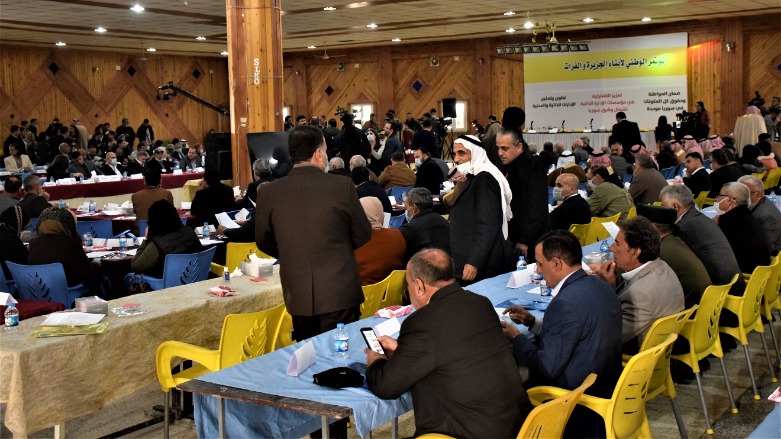Kurdish-led authorities in Syria investigate over 100 people for corruption
With ISIS's territorial defeat in 2019, the Kurdish-led administration “devoted more time to focus on other challenges including corruption” and the “misuse of powers,” an advisor explained.

ERBIL (Kurdistan 24) – The Syrian Democratic Council (SDC) announced on Saturday that local authorities are investigating over 100 people as part of a new anti-graft campaign.
The SDC said in a press release that suspected corrupt individuals “have been transferred to special courts.” The move comes as part of “a massive campaign to combat corruption” within the Autonomous Administration of North and East Syria (AANES), it added.
The statement added that the anti-corruption campaign will target officials at all levels and expand soon.
The investigation began after the National Conference for the People of al-Jazeera and Euphrates meeting on November 25. The event aimed to make the AANES more representative and hear local complaints from both Kurds and Arabs.
Locals present at the conference reportedly protested the corruption within the Kurdish-led AANES.
After the gathering, a follow-up committee was formed that included the autonomous region’s civilian councils, with participation from senior AANES, SDC, and Syrian Democratic Forces (SDF) officials. This included SDF leader General Mazloum Abdi, AANES Executive Council Co-Chair Abd Hamed al-Mahbash, and SDC Co-Chair Amina Omar.
The SDC statement expressed the political entity’s hopes that the follow-up committee would further their goal of a “participatory democracy” and attain “the conference’s goals.”
According to a Stabilization Coordinator working for a United States Agency for International Development-funded program, combating corruption was one of the main challenges impeding good governance within AANES’s administrative bodies.
“This was admitted by the local councils themselves and openly criticized by local communities, civil organizations, as well as observers,” said the Coordinator, who did not want to be named.
Before the Islamic State’s defeat on March 23, 2019, in Baghouz, the SDF and AANES were more focused on fighting the terrorist organization rather than governance issues.
Last year, with the Islamic State geographically defeated, the Kurdish-led administration, supported by the SDF leadership, “devoted more time to focus on other challenges including corruption” and the “misuse of powers,” the Coordinator explained.
The SDF-led conference was an outcome of this new focus. The event prioritized “combating corruption” and included “very important decisions to restructure, increase inclusiveness and reform the governance entities of NE (Northeast) Syria,” the Coordinator added.
They also said the step was taken by General Abdi, “who is seen as a very reliable figure,” and “can bring all various parties together.”
Editing by Khrush Najari